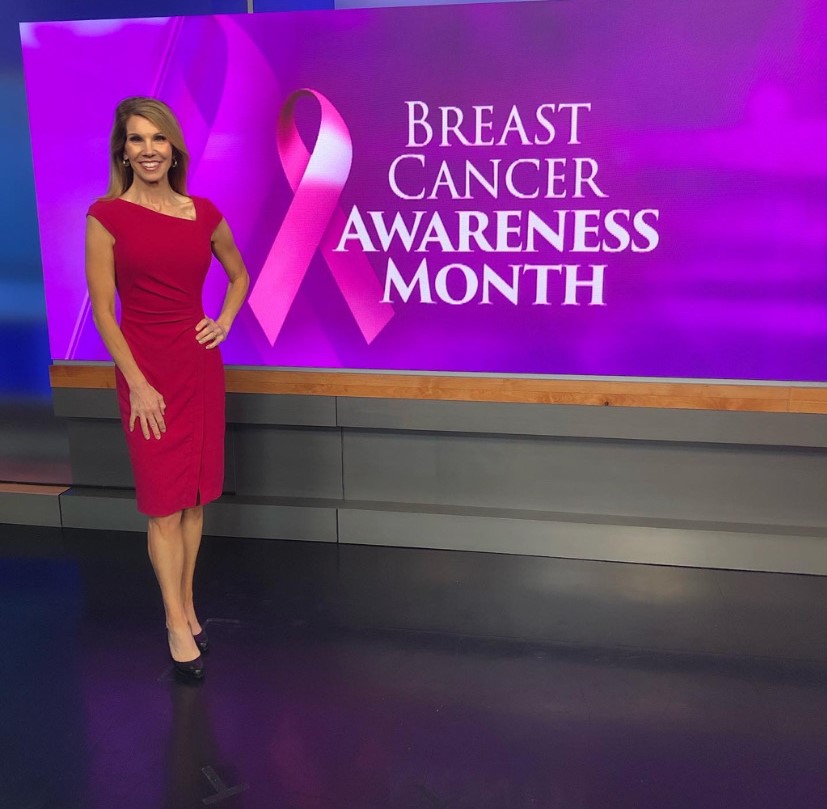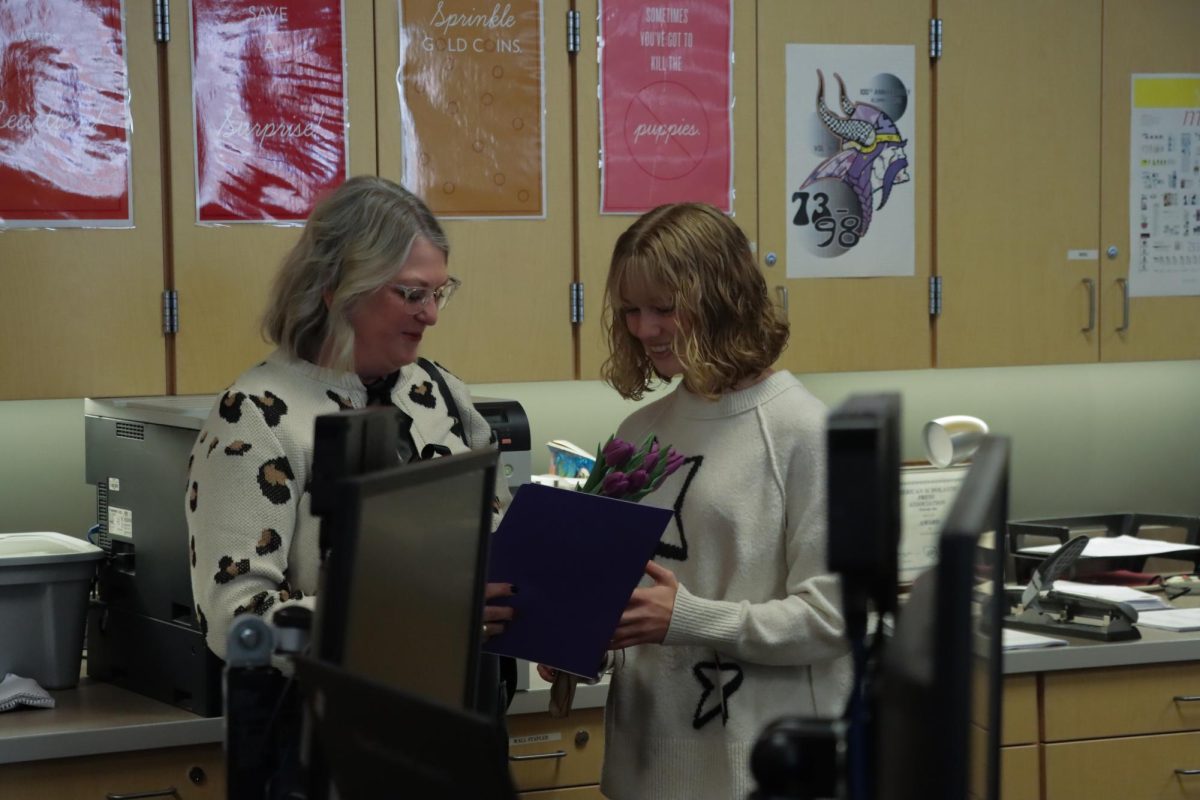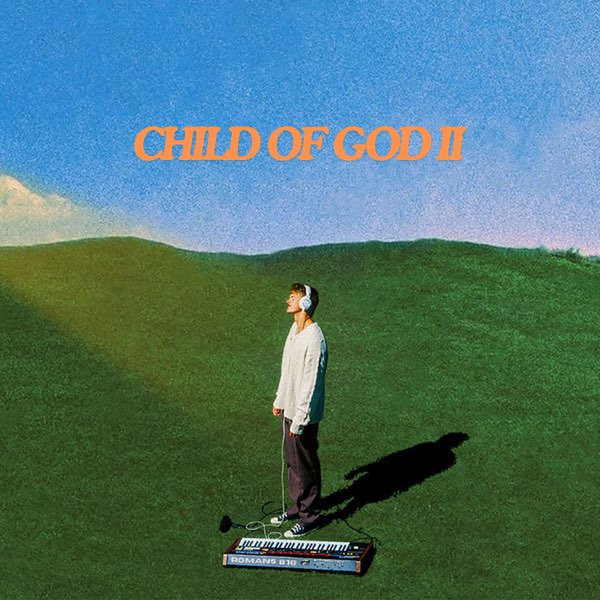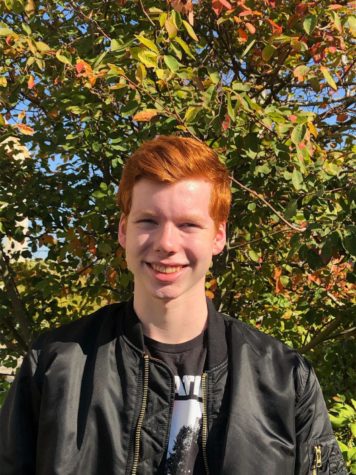Michelle Millman is many things: a familiar face to start the morning for many Washingtonians, an incredible mother, a recipient of many awards, a philanthropist and a great person.
She started her journey to working at KIRO in college at the University of Washington when her professor told the class about an internship opportunity which she quickly seized.
“Because of that, I got to know people who work there, producers, writers, my bosses and stayed in touch with them,” Millman said. “And because of that, when I had my second TV job in Yakima and I was ready to leave… who did I call? I called people I still knew in KIRO 7. And that’s how I got that foot in the door.”
Of course, simply being a former intern wasn’t the only reason she was hired at such a major station.
“They had to want to hire me of course, it wasn’t just because I’ve been an intern, but because of those relationships I had volunteering there and that I stayed in touch with those people, it really helped me get back in the door because they knew me already. It gave me a step up. So it was kind of an interesting journey. And I love the fact that I interned there and now I work there,” Millman said.
Millman says there are many challenges in the industry, from being the bearer of bad news to a demanding schedule.
“The hardest thing is, just as an example, the shooting at Ingraham High School. That was breaking news when I was at KIRO 7 during my shift. And I had to run out to the set and we went on air with that and it’s just completely heartbreaking as a mom, as a human being, covering for a school shooting and bringing news to people and thinking you’re the person they’re hearing it from first. Are the parents watching TV right now, do they know? It is so difficult,” Millman said.
The current divisiveness of the country is another difficult area of her job.
“I would say the hardest part is knowing there is a certain part of the population who, no matter what side you are of the political spectrum, just doesn’t believe what you’re saying. [KIRO 7] pride[s] ourselves on telling the truth, trying to give both sides of every story if we can,” Millman said.
Telling the truth to viewers is a priority for KIRO 7, even when facts are limited.
“We try so hard to keep that trust with our viewers. I think it has become very difficult whether it’s the growth of social media, or just divisiveness that we’ve all experienced in the country lately where people don’t always believe what you’re saying even though it’s the facts we have right now that we’re presenting to people,” Millman said.
Millman’s daily schedule is also a struggle, as the morning show requires her to wake up at 2 a.m.
“I’m very quick to get my makeup on and head to work and I get in about 3 a.m. We go over what the reporters are going to be doing, and I talk with the manager about ‘Hey, we should make sure this is in the show,’ or ‘Maybe the reporter should do this instead.’ I take pride in helping decide what our reporters cover that day. That’s how I started; I was a morning reporter out in the field,” Millman said.
After the reporter’s assignments have been set for the morning, Millman gets ready for the live morning show.
“I get out to the set about a quarter after 4 a.m. and get the microphone on and make sure everyone can hear me and then we’re on until 7 a.m. doing that live show. It’s all live. And then we do local news breaks during the national news that goes seven to nine. And that’s just me and the meteorologist. We do those and then I take about an hour break and usually go for a walk so I can keep my energy level up, because it’s a really long day since I also anchor that noon show,” Millman said.
Her day isn’t done though, as she also has to anchor the noon show alone.
“[The noon show] is an hour and I’m alone for that one. I don’t have a co-anchor. I have my meteorologist and me doing the news or any breaking news that happens. I find that getting out and getting some fresh air gives me that boost of energy to get through the second part of my day and then I come back and I’ve already kind of chatted with the noon producer and then do the noon show, read through all those scripts. Again, it’s an hour alone, so there’s a lot more scripts to read through. And then do I that show live, noon to 1 p.m.,” Millman said.
Despite the challenges of her job, Millman says she truly enjoys the experience of being the person that people look to for news.
“Hopefully I help them smile and have a great day, but to also bring them what happened overnight while they were sleeping, things they need to know in their community. And to me, it is an honor. Really to be that person viewers turn to… it really is an honor to know that they’re choosing KIRO 7 Morning News… and the News at Noon as well to get what they need to know to get about their days. So that to me is a real honor,” Millman said.
Millman’s favorite stories help someone’s day get off to a good start.
“I think it’s really because of what I hear from viewers the most when they email or get in touch with me, they thank me for starting their day off with a laugh or smile. And I think it’s kind of changed over my career. So currently, it would be helping people start their day with the information they need, but maybe if they head out the door to work and I made them smile or laugh and like ‘Okay, I’m going to have a good day, it makes me feel good to know that I can help them with that in a little way.’ … I think that would probably be the thing I like most now is just feeling like I do kind of have a tentacle out into the community and helping in a little way,” Millman said.
During her internship, she worked as a morning reporter, which she says was a different but still rewarding experience.
“When I was reporting, it was very humbling to tell people’s stories, and that people would open up to you to tell their stories. And it always amazed me that people would open up again, and it is hard sometimes to get people to open up depending on the subject matter as you know,” Millman said.
Millman briefly touched on the fact that, although we are a high school news organization, some of the challenges are still the same, including the difficulty of getting the interviewees to open up.
“That was always very humbling and a great part of the job… Some stories are different, you know, very, very difficult. To ask someone to open up about a loved one who maybe just died tragically or however… and then some stories are very happy, and people love to share. So that always is a roller coaster of emotions for people when they share their stories,” Millman said.
She opened up about an interview she had done with Lilly Cornell Silver, the daughter of Soundgarden and Audioslave’s Chris Cornell. She has been working to break down the stigma around mental health issues, sparked by her father’s suicide in 2017.
“Almost two years ago, I was able to interview Lilly Cornell Silver. [Chris Cornell] was always open about his mental health and his struggle with drugs and that sort of thing, and the fact that Lilly agreed to sit down and talk to me for quite a while… was a great experience for me personally,” Millman said.
For KIRO 7’s website, Millman wrote an article drawing from her interview with Cornell Silver about mental health.
“That meant so much to me that that she trusted me to tell her story and to talk about her father, which she doesn’t do a lot on camera. She has a podcast where she talks about him and talks with his friends and things so that’s something that stuck with me as a great memory… She’s just an amazing lady with what she’s been doing to erase the stigma,” Millman said.
Millman says she first knew broadcast journalism was the career for her during her freshman year of high school.
“I just loved to figure out why things were the way they were, I was very inquisitive. I loved to figure things out and talk. I was very communicative and very social, that sort of thing. And I thought maybe being a reporter would be great. Being a journalist and trying to dig into why things happen and why things are the way they are. I just decided freshman year in high school, that’s what I wanted to do, and it just kind of grew from there. I just kind of put blinders on and that’s what I was going to do. I knew I’d start out with a communication degree when I went to college,” Millman said.
At Millman’s alma mater, the University of Washington, there were various communications courses she could take, and of course, she chose broadcast journalism.
“I thought, ‘I think I could be a reporter.’ It just kind of morphed into that and I loved it the more I got into it, and then I got to college and thought, ‘Yeah, this is what I want to do, holding people in power accountable and hearing people’s problems. How can we help solve that? Covering history? It’s all very exciting.’ [It’s] a real honor to be one of the few people who take this profession and share history with people and record history is very exciting and an honor. I knew I picked the right profession, but it can be tough. I mean, the job isn’t all hearts and flowers and rainbows,” Millman said.
In addition to her crowded schedule, she is also active in working with multiple charities.
“I do a lot of work for the American Cancer Society… that happened after I was diagnosed with thyroid cancer in ’08 and breast cancer the following year. So that got me really interested in wanting to help and raise awareness and funds. Obviously, it’s an issue that’s very close to my heart. I do a lot with American Cancer Society and that also has led to stuff with Susan G. Komen and that’s all breast cancer stuff,” Millman said.
Along with supporting others who have struggled with breast cancer, Millman also works with a variety of other charitable organizations, including the Northwest Kidney Center and the Festival of Trees which raises money for uncompensated care at Seattle Children’s.
“Raising funds and helping do such important work for these 501C3’s… those [events] are their main moneymakers, in order to help people who can’t afford certain treatments, whether it’s cancer or kidney dialysis or whatever it might be… people will come to me and if it really touches my heart that way, if I’m free and can do it… I’ll do it because I’m not at work… You always hope whatever you do is helping a good cause, and if I can volunteer my time I absolutely will,” Millman said.
Her experiences at these events have helped make her a better person and learn more about the struggles of others.
“I would just say, hearing these stories from people… when you read things and it just hits your heart on how much people are struggling or are in need financially or with their health to what they’re dealing with. Amazing people making the best of their situation. Learning that before the event and then the night of the event, when the keynote speaker talks, and listening to them it’s so inspirational and it really touches your heart and how wonderful that you hear these stories. And it’s amazing what people go through and to know that our community is so giving is humbling,” Millman said.
The amount of money our community raises never ceases to amaze Millman.
“It is truly amazing and wonderful… It makes me, even though I am a two-time cancer survivor, I still feel very fortunate. I go to these events and think ‘Oh my goodness, I can’t believe what this person or these people are going through and dealing with,’ And it makes me feel very grateful. I come home and I hug my kids a little more and my husband a little more, and I have my health and health care. A lot of these events I emcee spotlight people who don’t have good health care and can’t afford things and so the community raises money to help them get treatments or whatever it may be,” Millman said.
Her work with charities and on KIRO has won her many awards, from daytime Emmys to the American Cancer Society’s volunteer award, but they don’t affect her nearly as much as one might think.
“I have to be careful how I say this. [The awards] mean so much. But it’s nothing compared to what all the people I’m trying to help and what they’ve been through. As journalists, from day one we’re told that the story is not about us. Community, or whatever the issue is, don’t make the story about you. It makes me uncomfortable if I were to be like ‘Oh, look what I have’,” Millman said.
Despite that, she enjoys being recognized by such prestigious organizations and her peers.
“I was awarded Mother of the Year… several years ago by the American Lung Association… I was speechless, and it meant so much to me. But sometimes, when the spotlight is back on you, it’s like ‘No look at all these others!’ But it’s just a great honor for sure. And then the Emmys… being recognized by your journalism peers in winning an Emmy is very fulfilling because most of us work very hard and take this profession very seriously and then to be recognized by a group of your peers who say ‘That was good work. You did do a good job on that’ is pretty nice because you do work and you put your heart and soul into it like most people do in any profession,” Millman said.
She also offered some great advice on breaking into the industry, especially as a new journalist.
“Oh boy, have thick skin. Have your eyes wide open and know what you are getting into, because it is getting more difficult with the rise of social media with the rise of citizen journalists, there’s more competition. America’s attention is on so many different things versus when I started. Everyone has a phone, and they can get their news from so many different sources,” Millman said.
As everyone has a phone and can get and share news instantly nowadays, the reach of television news has lessened. However, this means that larger news markets have begun hiring people at younger ages.
“I know that a lot of TV markets seem to be hiring people that were younger, with maybe not as much experience. So that’s been an interesting thing. There is more opportunity for people to come to larger markets at a younger age. So that’s exciting. Whereas when I started, you had to kind of have a little more experience to get into a Seattle TV market. So that’s changed a bit, but just know that it’s very difficult,” Millman said.
Despite people’s insistence of the challenges that journalists face, Millman persisted with her career choice.
“If you want to be a journalist, there’s nothing that can change your mind. People said to me ‘You will work in the middle of the night. You will work holidays. You will work weekends. You will make no money. You will listen to police scanners. You will take equipment home and go out in the middle of the night and take that video all alone of that horrible crash…’ it’s not like you have a cameraman when you’re starting out,” Millman said.
However, none of those challenges have deterred Millman’s path to working as a successful anchor.
“If you want to be a journalist and you have the passion, don’t let anybody tell you that you can’t do it, because I’m doing it… It’s important work and we need good journalists who are holding the powerful accountable, who are asking the questions, who are digging deeper into the story. We need the next generation, and no pressure, but it’s on you,” Millman said.






